This weekend sees a huge anniversary in Florence. 50 years ago on 4th November 1966 the Arno river burst its banks and flooded the city – with huge consequences. More than a hundred people died and thousands of businesses were ruined and families made homeless. Even more of a milestone was the destruction and damage done to historic buildings where tens of thousands of artworks and books were damaged or destroyed by the water or the over 600,000 tons of mud, sewage and rubble. The National Library, which sits right on the riverbank, lost millions of books. Around the corner, the church of Santa Croce saw unbelievable damage.
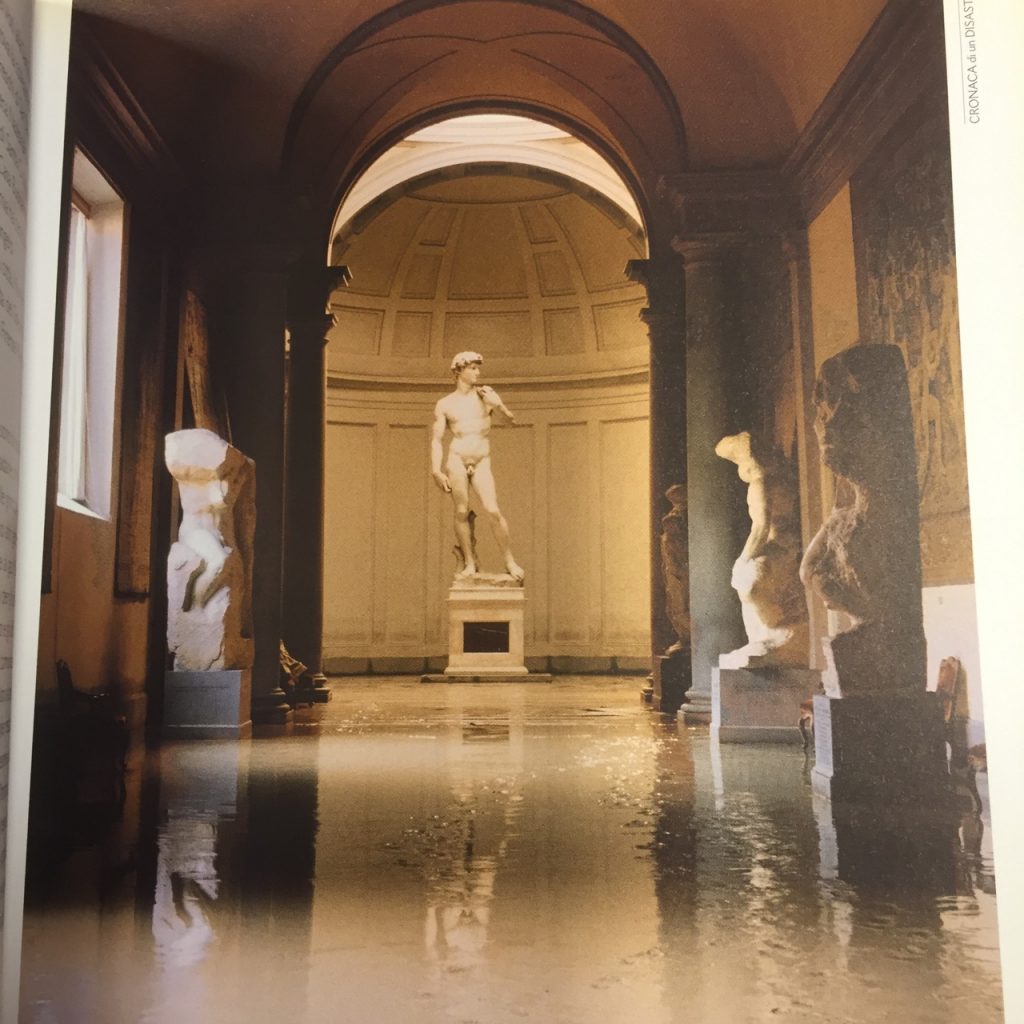
Immediately, thousands of volunteers started coming into the city, from the area, from the rest of Italy and from abroad. They became known as the Mud Angels, gli Angeli del Fango, forming themselves into a civic army that tackled the cleanup of the dirty, despoiled city. Experts in conservation and restoration flocked in to help and many new techniques were invented as a result – it is in fact a milestone in art restoration. A group of women artists around the world, the Flood Ladies, donated art to fill the empty spaces and their efforts were well-noted this week as well. More on that on this local blog.
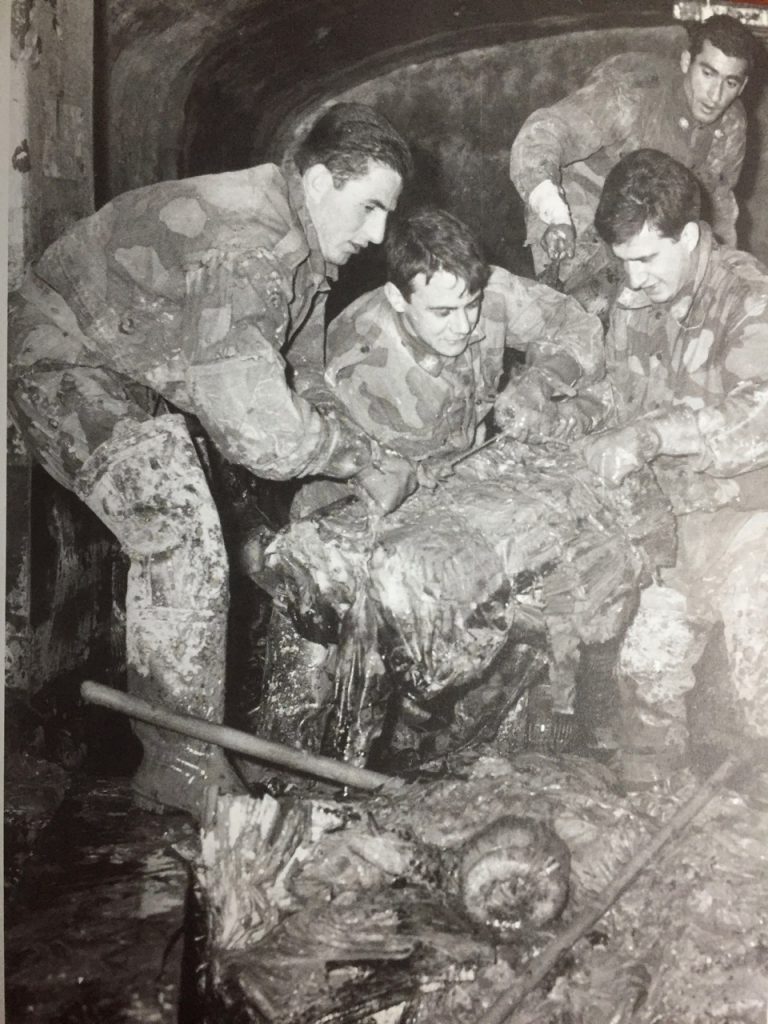
Next time you visit Florence keep an eye out for the markers discreetly placed in walls and arches in different parts of the city. They mark the (amazingly high) level of the river after the flood.
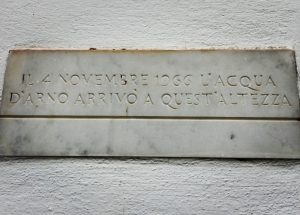
When you look at these amazing photos today you can see why it was such a disaster for the city. On the radio this week I heard a local mud angel – a scout troup leader from Scandicci – describe how on this occasion the famously reserved Florentines found a way to come together as a community and save their city. Even more than today, 50 years ago Florence was a city of shopkeepers, tradesmen, teachers and civil servants as well as the home to amazing treasures that it has kept safe since the Renaissance. It is these treasures that have, over centuries, brought strangers here, often resulting in a clash of opposites. Today it feels overwhelmed by tourists – apparently 9 million visit every year – but they are mostly confined to a small part of the city centre, which these days we only rarely visit.
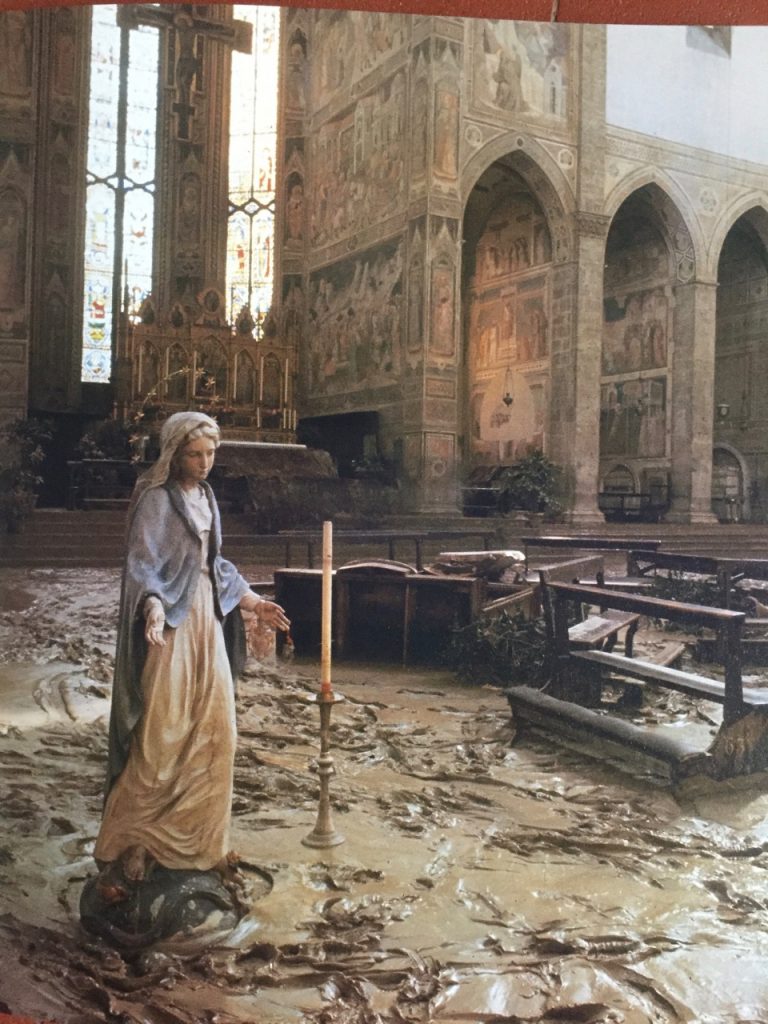
And I was pulled to come here too, over 20 years ago. When I was finishing secondary school and planning what to study next I set my heart on learning to be a conservator. I have no idea where the impulse came from, I had loved art at school but was a terrible artist, preferring the history of art instead. I decided to study Italian and Art History at UCD and during my degree spent a year in Florence. I knew little then or indeed until this year about the flood and the effects it had on the world of restoration – a world I soon found was not for me, all chemistry and mathematics and not so much creativity. But reading today’s Irish Times I discover that a kind woman at the National Gallery in Dublin who once let me poke around in her workshop all those years ago, Maighread McParland, was in Florence 50 years to help with the efforts.
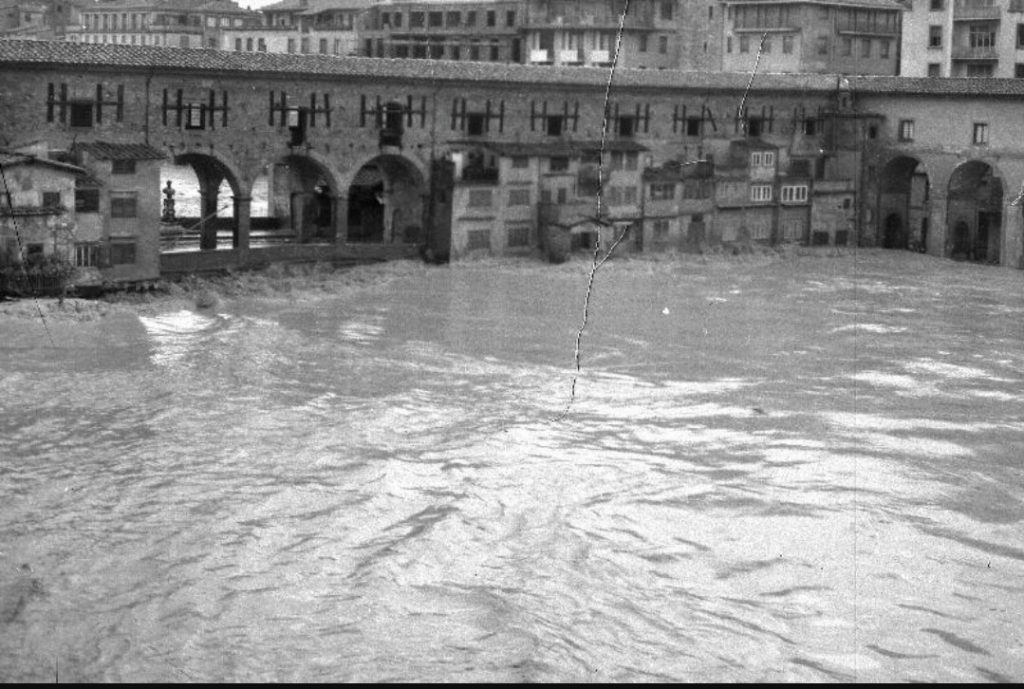
The city has organised an amazing number of events, exhibitions, lectures. All the Mud Angels they could find were brought back and honoured. On Instagram you’ll find hundreds of visual reflections about the river and the local English-language magazine, The Florentine, has lots of good stories. And here’s a great video of images – set to the song about the flood by local troubador Riccardo Marasco.
A nice touch of was the reopening yesterday of the piece of road along the river – the Lungarano Torrigiani – that collapsed to great media attention during the spring. (A bit of road that doesn’t really affect more than those of us who need some more parking options closer to the centre of town.)
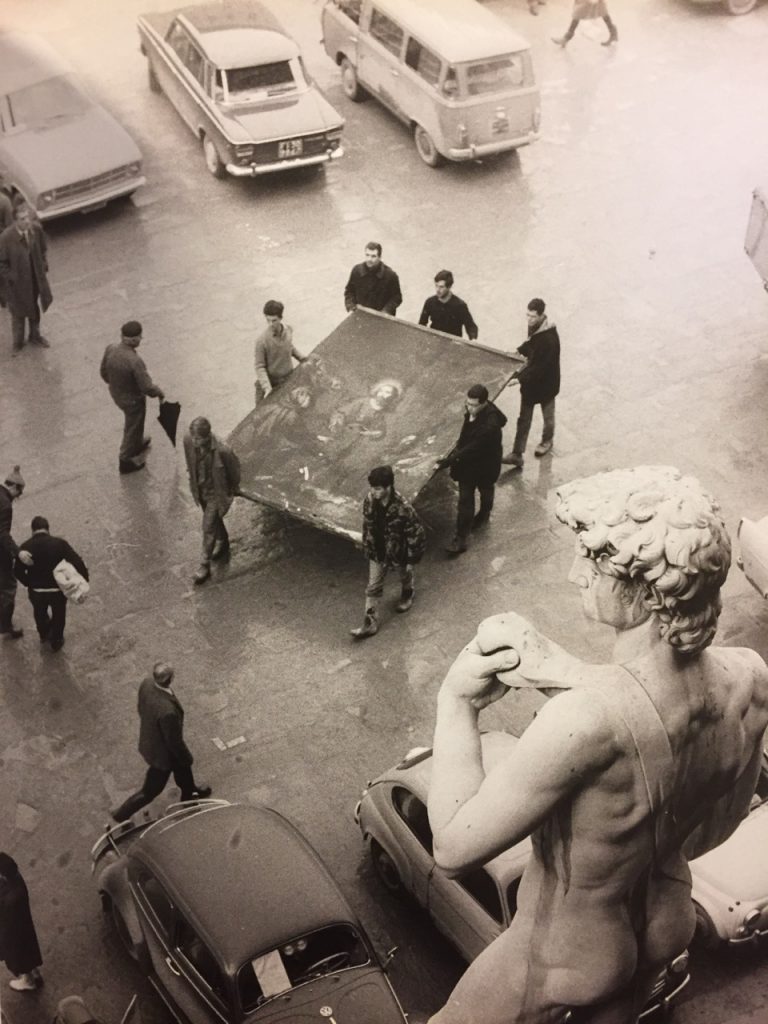
Last night there was a no-doubt very beautiful candlelit procession from San Miniato al Monte, that gorgeous church up the hill from Piazzale Michelangelo, all the way down to the river and across to Santa Croce, the spiritual heart of the city. We didn’t make it, due to a wisdom tooth issue and Friday night crankiness, but maybe I felt it might have been too emotional to handle.
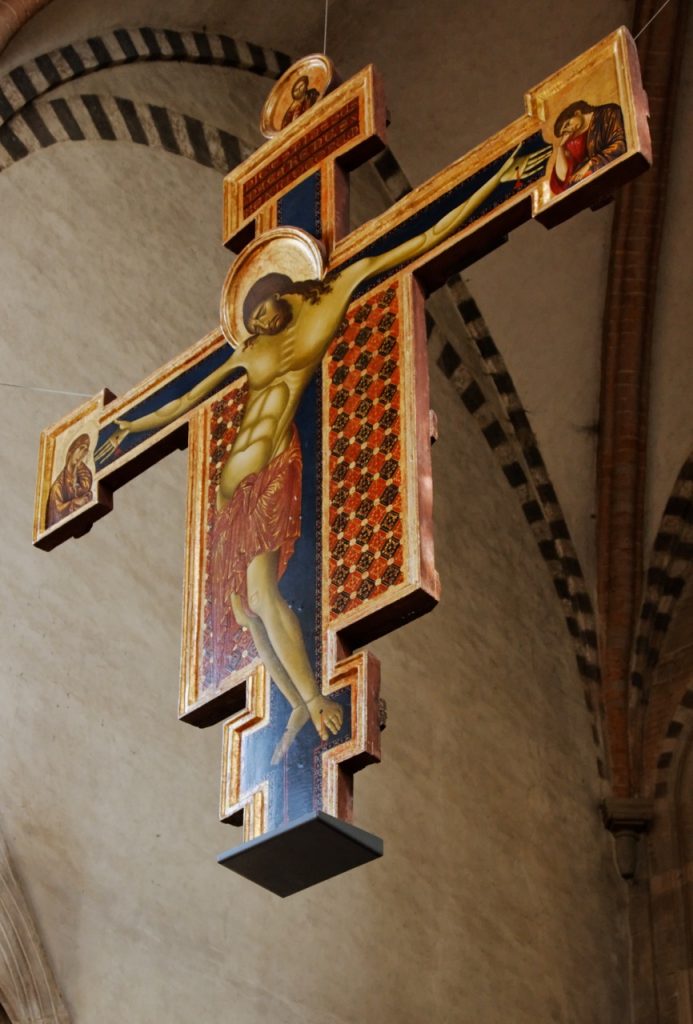
The symbol of the flood, and all that it meant for Florence and those who love it, is Cimabue’s crucifix which is now up again in the sacristy of Santa Croce. Created in around 1265 – long before the Botticellis and Michelangelos that adorn the knockoff posters and aprons in the local tourist shops – it is the symbol of the whole story, its stunningly-beautiful face of Jesus and clearly damaged state encapsulating the sometimes-overwhelming heritage of this city.
All photos are from 1966 and have been borrowed from the internet or the book Gli Angeli del Fango (Giunti 2006)